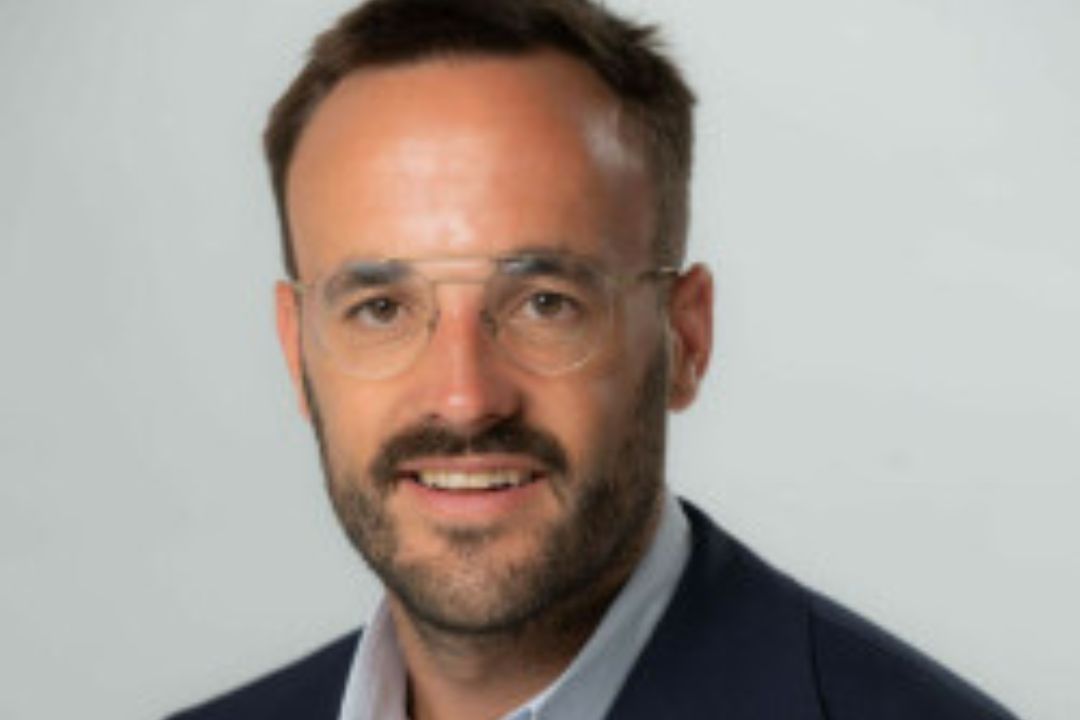8th December 2021
Every day we have to make important decisions about health: in our community, in our workplace, while using health services or even when we make political decisions. Still, many Europeans have little idea of what health literacy is or how it impacts our lives. Hernâni Zão Oliveira is committed to help Europeans become more health literate so that they can navigate more effectively in the healthcare system and live a better quality of life.
When Hernâni Zão Oliveira was studying oncology at the University of Porto he witnessed first-hand the importance of health literacy and what the lack of it meant for patients in real life. ”I saw there people struggling with a lack of information and a lack of autonomy. They were diagnosed with breast cancer. The doctor said, ‘you have carcinoma’ and some women did not realise what carcinoma was or what kind of cancer it was. This was a wake-up call for me” – recalls Oliveira who is a researcher at the University of Evora, the Portuguese EIT Health Hub.
This happened back in 2010, when “we did not have this approach to mix different sciences to make information better understandable”. The experience had such an impact on the Portuguese student – who also obtained a journalism degree – that he realised he wanted to do “something good to women struggling with breast cancer”. He tried to translate the journey of these patients into a digital agenda that had infographics, a dictionary, and photos. It was very well received by patients and health professionals as well. “It was good to know that we could contribute to help people navigate in the healthcare system. To help people to have access to information which they could use in a practical way.”
After the first success, the Director of Pediatrics of the Portuguese Institute of Oncology reached out to him because children who had cancer were experiencing some common challenges such as anxiety and low physical activity, which led to low Body Mass Index (BMI). Because of the latter, they could not undergo chemotherapy cycles, simply because they were too weak. Oliveira and his team interviewed 74 kids and realised that the best time they had in hospital was when they played video games on their tablets, in bed.
“We incorporated a new technology: a new video game to increase the physical activity and to decrease the anxiety with a story of a child who surpasses cancer as superheroes fight against the bad guys. We also incorporated a technology that detects the children’s movements, so they were doing physical exercise recommended by the physical therapist while learning about their journey. Their anxiety levels decreased with time” – explains Oliveira who has been an EIT Health facilitator since 2020. After these experiences, he knew crystal clear what career path he wanted to pursue: “When I started thinking about my PhD, I was thinking about a term for this, and health literacy was the best term I found.” He got accepted to the Digital Media UT Austin/Portugal Doctoral Program and he also started to co-coordinate the first Portuguese Creative Laboratory for Health Literacy.
Increasing people’s control over their health
As he explains, although this is a relatively new term – it was used for the first time in 1974 by Scott Simonds –, it has many definitions. The one he prefers is from 2006. “Ilona Kickbush said: ‘Health literacy is the ability to make sound decisions in the course of a day to day life.’ This is very important because every day you have to make important decisions about health. In the community, in the workplace, while using health services, in the market and in the political context. It is much more than health: it is the way you live your life. Kickbush says that health literacy is an important strategy to increase people’s control over their health and over their ability to seek information” – he says, adding that people still do not understand what health literacy is, how important it is and how they can measure it. It is indeed a complex, multi-layered concept: it is a combination of many things, among them, numeric and digital literacy. (This latter is quite important in today’s context when we are dealing with a global pandemic and those who want to get vaccinated need to be digitally literate to do so.)
Health literacy in Europe was measured in 2015 when a survey was conducted in eight countries (Austria, Bulgaria, Germany, Greece, Ireland, the Netherlands, Poland, and Spain). The results were devastating: “at least 1 in 10 (12%) respondents showed insufficient health literacy and almost 1 in 2 (47%) had limited (insufficient or problematic) health literacy”. As Oliveira points out, low health literacy represents many challenges to those affected: there is a high probability of hospitalisation and hospital readmission for them, high prevalence of chronic diseases, the difficulty of understanding the organisation of health services and a lower quality of life compared to people who have a higher level of health literacy. It is more common for people with low health literacy to have diabetes, cardiovascular diseases, suffer from obesity or cancer diseases.
“We know from studies that the risk of mortality among the elderly is also dependent on the level of health literacy because they have reduced ability to take medications accurately, they have difficulty understanding labels and other medical information” – says Oliveira, adding that low health literacy is also a problem for the health systems because a person with low health literacy could cost thousands of euros more a year to them than a person with an adequate level of health literacy.
Universities are key players
The problem seems easy to solve: the level of health literacy needs to be increased. The big challenge is how to do it. Healthcare innovation is very important, but entrepreneurs should at the same time create an impact on health literacy levels. “If you are creating a website, there are models to communicate to people with low health literacy. There is plain language to be used, and there are tips regarding visibility that will invite them to use this technology” – he explains. Oliveira thinks universities could have a big role here because they could reach out to entrepreneurs and teach them these validated models. They could thus develop new tools with the maximum inclusion of people, from low to high literacy. Universities could also show the industry and external stakeholders the importance of health literacy and how to measure it.
Health education could also help increase health literacy, but there would need to be a shift from passive to more interactive education. “We have to forget leaflets with patronising information. We have to have a more motivational approach because people don’t want to receive more information filled with words.” The role of education is also important in the context of value-based healthcare: for this model to work health literacy levels need to be increased through health education.
The close co-operation between countries – sharing their evidence and operational models regarding health literacy – would also be crucial, according to Oliveira. “All countries should have an agenda when it comes to health literacy and how to measure its impact. It would be very interesting to have this fast track of innovation between the national health systems.” Another concept that all countries should familiarise with is a “health literate organisation”: a healthcare organisation that makes it easier for people to navigate, understand and use information and services. “This is the beginning of everything. People trust doctors but sometimes it is lost while they are navigating in the healthcare system. It takes a lot of time to find the correct person to talk with and we need to have these health literate organisations as the first steps of the evolution of health literacy.”
When Oliveira explains the importance of health literacy to his audience, he shows people seven doors, from which each of the doors represents a choice. People with high literacy have a sign above the door that represents the correct option. We don’t know if they are going to open it, but they know their best option. People with low health literacy see a very different thing. “Imagine if all the seven doors were painted the same way. The same signs, same things. This is how people with low health literacy see the options they have. We have to try to embrace and motivate them and say: open the door. They have to know which the correct option, the correct door is, and we have to make them want to open the door. This is my area of interest.”
Hernâni Zão Oliveira, PhD, is a researcher at the University of Évora. He is co-founder of BRIGHT – Beyond Research and Information Graphics for Health and Technology. He has a double degree in Biology and Communication Sciences and a Master’s degree in oncology. He earned his PhD at the Digital Media UT Austin/Portugal Doctoral Program. His projects helping breast cancer patients and children earned him the Diogo Vasconcelos Social Entrepreneurship Award, the Santander Bank RedEmprendia Innovation Prize, and the 2017 Astellas Oncology C3 Award. He joined the innovation fellows programme of EIT Health in 2018.
Europe's top health start-ups take centre stage: EIT Health Catapult winners are revealed at HLTH Europe

2025 Catapult programme winners announced.
Finding Europe’s next healthtech leaders: Insights from Antoine D’Hollander

Insights from Antoine D’Hollander, Capricorn Partners.
EIT Health supports 17 promising deep tech start-ups bridge the ‘Valley of Death’

Providing start-ups with the right support.